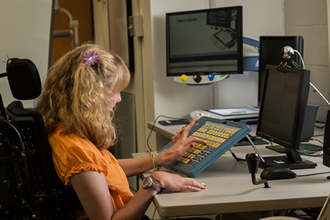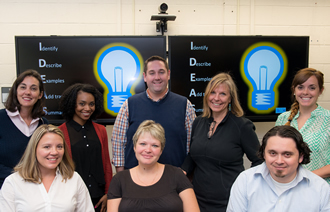Program Description
Scholar Competencies
Project TURTLES has been developed to prepare special education leaders who are well-qualified to plan and supervise effective instruction, interventions, and services that improve outcomes for children with disabilities in a variety of settings using a variety of modalities. By the end of the project, scholars will demonstrate competency in (a) evidence-based interventions and services, (b) special education leadership, and (c) program evaluation
Project Components
Project components are interconnected to foster the development of well qualified and effective special education leaders through: (a) coursework with embedded field experiences at the scholar's current place of employment, (b) cross-site activities designed to foster communication and collaboration with stakeholders, and (c) systematic and individualized mentoring based on scholar needs.
(a) coursework with embedded field experiences at the scholar's current place of employment, (b) cross-site activities designed to foster communication and collaboration with stakeholders, and (c) systematic and individualized mentoring based on scholar needs.
Coursework with Embedded Field Experiences
Scholars at each of the three participating sites will engage in:- special education leadership coursework that addresses the Administrator of Special Education Professional Leadership Standards identified by the Council of Administrators of Special Education (CASE) within the Council for Exceptional Children (CEC),
- special education coursework that will develop their skills and capacity for effective planning and supervision of specialized instruction and services that result in improved outcomes for children with disabilities, and
- research methods coursework that emphasizes the knowledge and skills needed to conduct a high-quality program evaluation that can be used to inform decision-making and continuous improvement efforts.
Cross-Site Activities
Scholars at each of the three participating sites will attend virtual and in-person professional events where they will:- attend sessions related to effective interventions and services (both for in-person and virtual learning) for children with disabilities, followed by a cross-site share out to PDs and Scholars of lessons learned and ideas for how what was learned can be applied at their current place of employment,
- hone their skills translating research findings to a practitioner audience (through conference presentations), with supportive feedback and mentoring from project directors, and
- engage in professional networking to build a support system for the continued development of skills in this important area of special education leadership.
Scholar Mentoring
Scholars from each site will meet monthly with peers and the PDs from their university where, as a group, scholars will access resources available to them at their university based on scholar needs and the stage of their program. In addition, each individual scholar will receive formal and informal advising and mentoring from the PDs each semester to help them reflect on their progress in the program and develop goals for continued progress. Project faculty will meet annually to review the performance of scholars and to provide formative feedback and planning support for competency development and scholar wellbeing.





